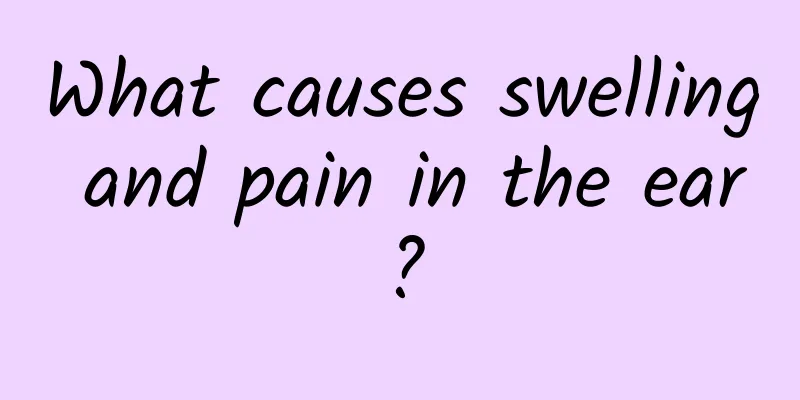How can I treat a bad smell in my mouth caused by wisdom teeth?

|
Many people often have some dental diseases in their mouths. These diseases do not seem to be very harmful, but they will affect our physical health and have adverse effects on our body. The growth of wisdom teeth will cause odor to be secreted in the mouth, so it is necessary to treat it as soon as possible and choose necessary surgical correction to achieve the treatment effect, mainly based on principles. Treatment method: Removal recommendation: Generally speaking, wisdom teeth rarely grow well. What does it mean to not grow well? Either it doesn't grow at all, or it doesn't grow straight. If the wisdom tooth cannot grow out, the gums will cover the wisdom tooth, causing gum inflammation, bad breath, etc. Abnormal growth means that wisdom teeth cannot grow out in the same posture as normal teeth. They are likely to be tilted and press against normal teeth, which can have serious consequences. As long as it doesn't grow well, it will become inflamed once every six months or a year, and the inflammation will last until you pull it out. Generally speaking, people with wisdom teeth will consider removing them when they become inflamed, but when they heal, they forget about it. So, don't take any chances. The process of extracting wisdom teeth is very simple. The doctor will inject an anesthetic injection into your mouth, and then your mouth will feel numb as if you have eaten too much ice cream. do not be afraid. However, I need to remind you that before having your wisdom teeth extracted, if you have inflammation, the doctor will give you anti-inflammatory treatment, and the tooth will only be extracted after the inflammation has completely disappeared. In other words, if you go to the hospital when your wisdom teeth are not painful, you can save a doctor's procedure. The price of wisdom tooth extraction varies in each place and is determined by the difficulty of extraction. Wisdom teeth can be painful, but everyone is different. Teeth should be retained as much as possible and should not be extracted if possible, as extraction may damage nerves. However, before extracting a tooth, the doctor will ask the patient to take a full-mouth X-ray of the teeth. See if the patient's dental nerve will affect the removal of wisdom teeth. Therefore, many people often ask: Should wisdom teeth be removed? Dentists usually recommend removing wisdom teeth for the following reasons: 1. Tooth decay: If wisdom teeth have tooth decay, except for very simple occlusal cavities that are not deep, which can be filled, we recommend extraction for those cavities on the adjacent surfaces, which require very good technology, and those that are very deep and even require root canal treatment, to prevent future troubles. 2. Invasion of adjacent teeth: Usually the patient is unaware of the disease, but the dentist can detect it through X-ray diagnosis. Usually there is not enough space for the wisdom teeth to erupt, and they will fall on the second molars, making it difficult to clean the second molars, or even causing partial absorption of the teeth, causing discomfort or toothache for the patient. 3. Insufficient space: Wisdom teeth have been extinct in the history of human evolution. As a result, the dental arches are getting smaller and smaller, and lack of space is common. The swelling and pain are most noticeable when the tumor breaks out. Many people decide to have their wisdom teeth removed because they cannot tolerate the pain. 4. Difficult to clean: Due to lack of space, wisdom teeth often grow crookedly, making it difficult to clean the teeth and leading to tooth decay. 5. No opposing teeth: As mentioned earlier, not everyone will have all four wisdom teeth grow. Therefore, if there is no competing wisdom tooth opposite the wisdom tooth, the wisdom tooth may over-erupt and affect the bite. 6. Impacted teeth: This is usually the most annoying type. Dentists find it difficult to deal with, but patients may not feel it and therefore ignore it. This type of tooth is usually buried in the alveolar bone and needs to be extracted if it hurts or if a lesion is diagnosed. |
<<: How to clean up the smelly particles coming out of your mouth
>>: What should I do if my baby always chews his mouth while sleeping?
Recommend
What is abdominal acupuncture?
Traditional Chinese Medicine is a traditional med...
What are the benefits of soaking snow gall in water
Many people have tried to make snow gall tea, but...
What are the early symptoms of muscular atrophy?
There are no obvious symptoms in the early stages...
Can taking Chinese medicine shrink tumors?
Nowadays, tumors are a very difficult disease to ...
What is causing the bloating and pain on the right side of my lower abdomen?
Some people experience bloating and pain on the r...
Causes of Dandruff
Too much dandruff causes great trouble to people&...
Can wolfberry be used to soak feet?
Wolfberry is usually used to soak in water or add...
How to detect myocardial ischemia? All of these methods work!
Patients with myocardial ischemia are mainly elde...
Children's ears and eyes
Careful parents will observe that their baby has ...
If you don't do a physical examination before doing this exercise, you will really die suddenly.
Life lies in exercise, but for some people exerci...
Why do I feel sick to my stomach sometimes?
Everyone has experienced the feeling of nausea. I...
What is the reaction after taking Shenbao tablets?
Many people think that Shenbao tablets will have ...
What to do if you have a headache due to high blood pressure
High blood pressure sometimes causes headaches. B...
Why do children sleep restlessly and often wake up?
If a child always has trouble sleeping, there mus...
Can Yin deficiency drink honey water?
Yin deficiency is a relatively common physical co...









